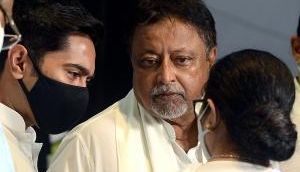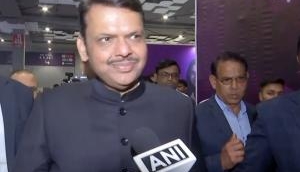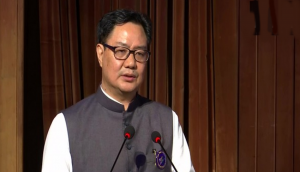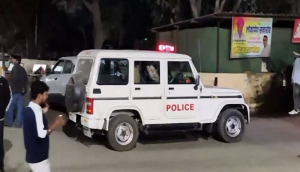
A lot has been said about the goings-on at Jawaharlal Nehru University (JNU), and a lot continues to be said as baffling events continue to unfold in this regard.
But for those not entirely clued in and looking to piece together the clues as to why a protest held at a left-leaning university like JNU could have ricocheted into what it has now, the basic question that must be addressed is...
What sparks the pro-Afzal Guru sentiment?
It is easy to shut out such voices, conveniently terming them anti-national for not sounding well-placed in our understanding of what is normative. But there are some very real, everyday concerns attached to events such as the hanging of an Afzal Guru.
No, we are in no way applauding the manner in which these concerns were relayed. First of, the students who had gathered to discuss Kashmir and the separationist movement on 9 February, marking Afzal Guru's death anniversary, did not have the permission to carry out the promised 'cultural event'.
And yes, perhaps some of the slogans raised that day in JNU premises were in complete disagreement with the Indian judiciary and perhaps, even the 'idea of India'.
The poster that announced this particular event read, "There will be an art and a photo exhibition portraying the history of the occupation of Kashmir and the people's struggle against it."
But let's not jump the gun
Afzal Guru, associated with the 2001 Parliament attack and Maqbool Bhat, a co-founder of the Jammu Kashmir Liberation Front (JKLF), were both hanged, on 9 February 2013 and 11 February 1984, respectively. Termed 'martyrs' at the said protest, the students commemorated the 'judicial killing' of the duo.
According to media reports, this protest served as a launch pad to protests planned in 18 other universities in the country. The reports further claimed that intelligence officials said that Umar Khalid, a member of 'Democratic Students Union' (DSU), was the main organiser of these programs.
Furthermore, Jadavpur University in Kolkata, taking a cue from JNU, held a similar protest, wherein a Zee News correspondent caught a group raising slogans like, "Afzal bole azadi, Geelani bole azadi, Chheenke lenge azadi", "Freedom from RSS, freedom from Modi government" and "Jab Kashmir ne maangi azadi, Manipur bhi boli azadi".
These slogans are justified, All India Students Association (AISA) leader Anumita Mitra told PTI. Mitra explains it by saying that the sloganeering directly questions the 'lack of transparency' in Afzal Guru's trial and death sentence.
Also read: Jadavpur University reacts to 'anti-nationalism' with vandalism on campus
But then, why should it be allowed?
The answer to that question is simple. These aren't protests that breed 'anti-nationals'. If anything, questioning our system and judiciary comes from the space that there is a certain fairness expected of them in the trial.
If a student force, the real face of Indian education, cannot raise difficult questions, our 'nation' (a word that is being thrown about a lot) can never grow.
When it comes to the organisation of the event itself, it must be noted that JNU is a no-frills educational body that actually urges free-thinking. Regardless of the event being termed cultural or not, it should have been assumed political, because that is the space JNU proudly inhabits.
That being said, I am in no way in support of the pro-Afzal Guru sentiment. But I am in support of the pro-Afzal Guru sentiment being allowed to voice itself.
-- Edited by Aishwarya Yerra





_in_Assams_Dibrugarh_(Photo_257977_300x172.jpg)


![BJP's Kapil Mishra recreates Shankar Mahadevan’s ‘Breathless’ song to highlight Delhi pollution [WATCH] BJP's Kapil Mishra recreates Shankar Mahadevan’s ‘Breathless’ song to highlight Delhi pollution [WATCH]](https://images.catchnews.com/upload/2022/11/03/kapil-mishra_240884_300x172.png)

![Anupam Kher shares pictures of his toned body on 67th birthday [MUST SEE] Anupam Kher shares pictures of his toned body on 67th birthday [MUST SEE]](https://images.catchnews.com/upload/2022/03/07/Anupam_kher_231145_300x172.jpg)






